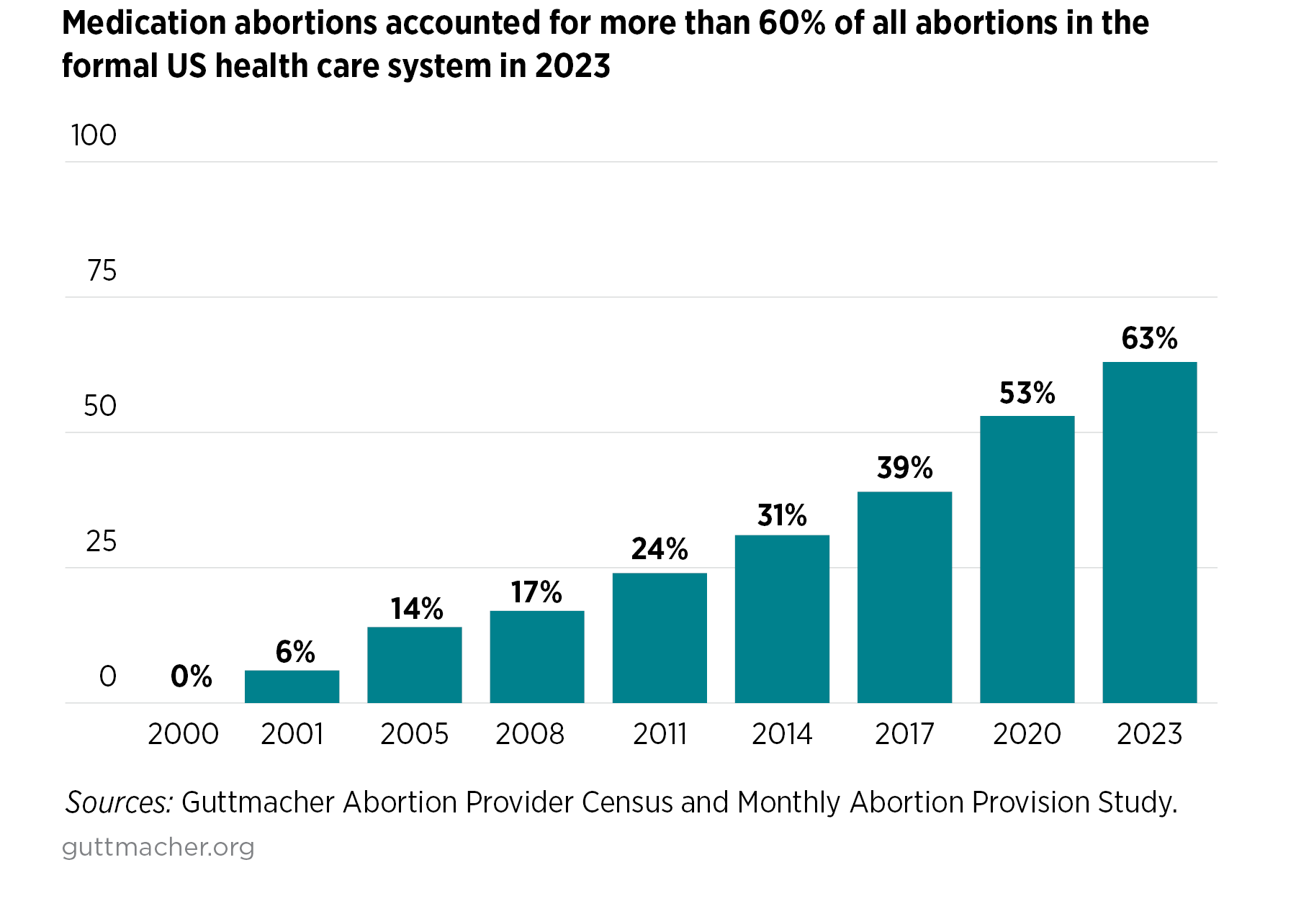Nearly Two-Thirds of Abortions Were Done With Pills in 2023. Trump Could Ban the Drug.
The most common method of abortion is under attack on multiple fronts.
Photo: Shutterstock AbortionPolitics
We’re one week away from oral arguments in a Supreme Court case that could restrict access to the main abortion drug, mifepristone, and a little under eight months away from another high-stakes presidential election with a GOP nominee who could potentially ban abortion nationwide. Yet, despite conservatives’ war on reproductive rights—or perhaps because of it—more people are using medication abortion than ever.
Medication abortions accounted for 63% of abortions done in 2023, up from 53% in 2020, according to new research from the Guttmacher Institute published Tuesday. That works out to about 642,700 medication abortions last year, though it doesn’t include abortions done outside the formal healthcare system. Evidence suggests that self-managed abortions have also been increasing in recent years, so these numbers are likely an undercount.
And, on Tuesday, the Supreme Court will hear the mifepristone case in which plaintiffs want to undo the FDA’s 2021 change that allowed telemedicine prescriptions. The court could also use the case to revive a dormant abortion ban called the Comstock Act, but even if it declines to do so, a cadre of conservative activists is pushing a future Trump administration to enforce Comstock to ban the mailing of mifepristone nationwide—including to states where abortion remains legal. (The FDA-approved protocol involves both mifepristone and a second drug, misoprostol; only the former is at issue in the case and the latter can be used on its own to induce an abortion.)
-

-

-

-

-

-

-

-

-

-

-

-

-

-

-

-

-

-

-

-

-

-

-

-

-

-

-

-

-

-

-

-

-

-

-

-

-

-

-

-









































